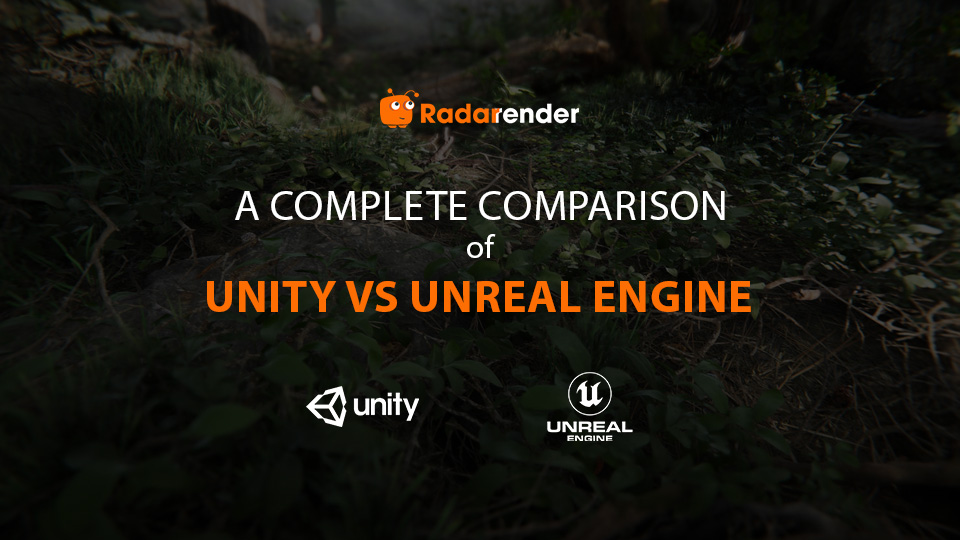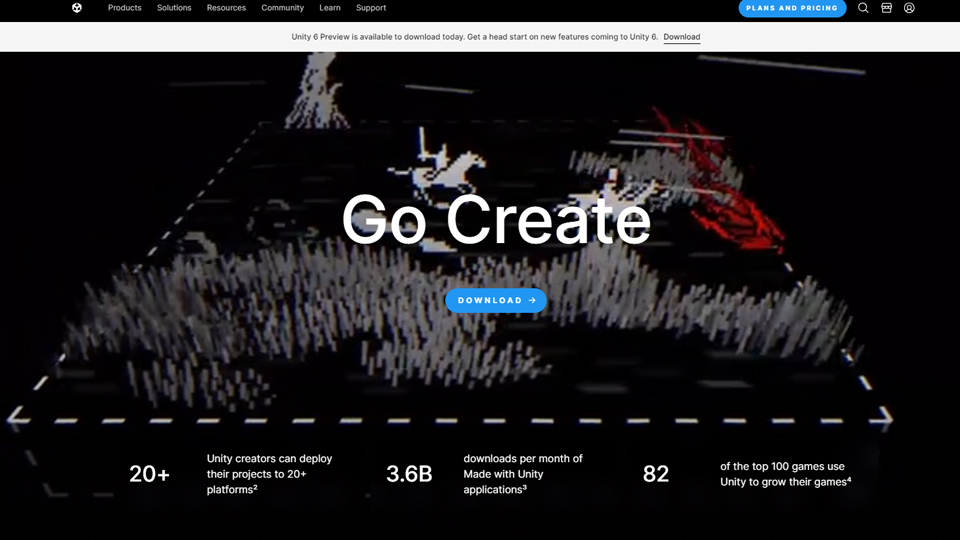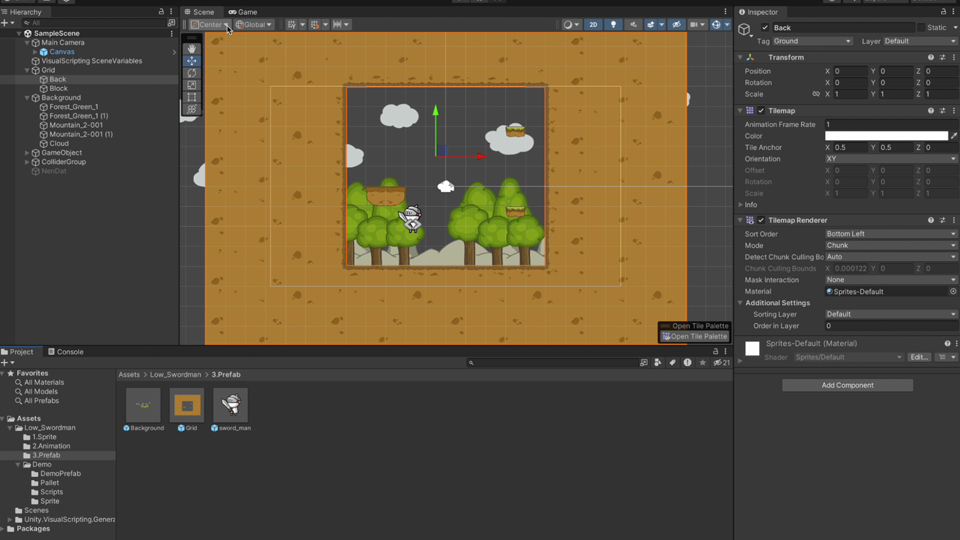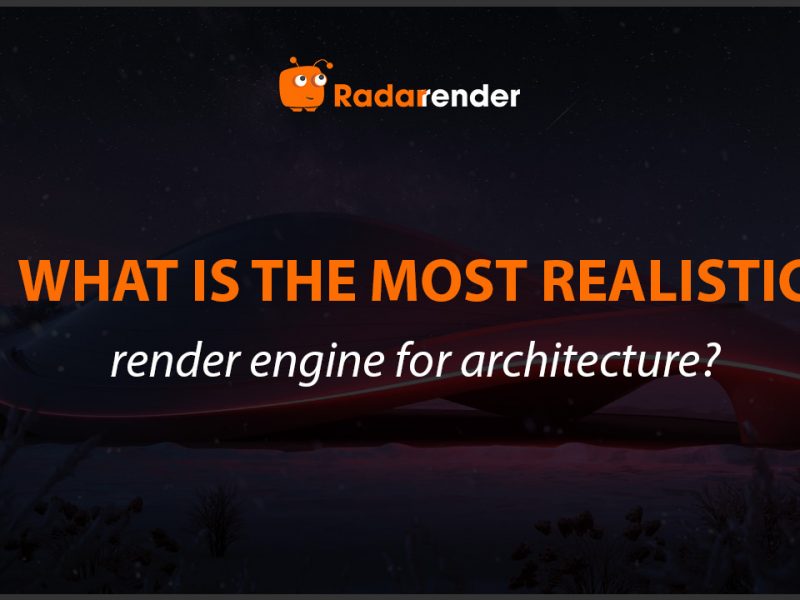A Complete Comparison of Unity vs Unreal Engine 5
Unity vs Unreal Engine 5 are two names of the best 3D software in game development and 3D rendering. Both engines are powerful tools used for creating a wide range of applications, from video games to virtual reality experiences and architectural visualizations. However, each has its unique strengths and differences that make them suitable for different types of projects.
Let’s compare Unity vs Unreal Engine 5 with Radarrender to find out the differences and which software to choose in your workflow.
Overview of Unity vs Unreal Engine 5
What is Unity?
Unity is a cross-platform game engine developed by Unity Technologies, widely used for developing video games for PCs, consoles, mobile devices, and websites. Known for its ease of use and extensive documentation, Unity is a favorite among beginners and indie developers. It supports 2D and 3D graphics, drag-and-drop functionality, and scripting through C#.
What is Unreal Engine 5?
Unreal Engine 5, developed by Epic Games, is renowned for its high-fidelity graphics and robust toolset. It’s often used for AAA game development, VR experiences, and film production. Unreal Engine 5 introduces innovative features like Nanite virtualized geometry and Lumen global illumination, which allow for incredibly detailed and realistic visuals.
Similarities of Unity vs Unreal Engine 5
Unity vs Unreal Engine 5 share several similarities that make them both powerful tools for game development. Here are some key similarities:
Cross-Platform Development
Both Unity and Unreal Engine 5 support cross-platform development, allowing developers to create games that can be deployed on a wide range of platforms, including PC, consoles, mobile devices, and VR/AR systems. This flexibility helps developers reach a broader audience.
Advanced Graphics Capabilities
Both engines offer advanced graphics capabilities, enabling developers to create visually stunning games. Unreal Engine 5 is renowned for its high-fidelity graphics, particularly with the introduction of technologies like Nanite and Lumen, which allow for detailed environments and dynamic lighting. Unity has also made significant strides in its graphics capabilities with the High Definition Render Pipeline (HDRP), enabling developers to achieve realistic visuals.
Comprehensive Asset Stores
Unity and Unreal Engine 5 both have extensive asset stores (Unity Asset Store and Unreal Marketplace), where developers can purchase or download free assets, such as 3D models, textures, animations, sound effects, and scripts. These stores provide valuable resources that can save time and effort in the development process.
Visual Scripting
Both engines offer visual scripting tools that allow developers to create gameplay mechanics without extensive programming knowledge. Unity provides Bolt, its visual scripting tool, while Unreal Engine 5 has Blueprint, a well-established visual scripting system. These tools make game development more accessible to designers and artists.
Virtual Reality (VR) and Augmented Reality (AR) Support
Both Unity and Unreal Engine 5 support VR and AR development, providing tools and features that help create immersive experiences. They offer compatibility with various VR and AR hardware, enabling developers to create applications for a wide range of devices.
The Main Differences Between Unity and Unreal Engine 5
Besides the similarities, Unity and Unreal Engine differ in terms of their target user groups, hardware requirements, pricing, advanced features, ease of learning, output rendering, and animation systems.
Purpose of Use
Unity is versatile and excels in mobile game development and simple 2D projects. Unreal Engine 5 is preferred for projects requiring high-end graphics and complex 3D environments, such as AAA games and immersive VR experiences.
So if you are a beginner or focus on mobile game development or 2D projects, Unity will be better for you. If you are an expert or interested in AAA game development or complex 3D projects, Unreal Engine 5 will be better.
Price Unity vs Unreal Engine 5
Unity operates on a subscription model with different tiers, including a free tier for personal use and paid plans for professional developers. Unreal Engine 5 is free to use but requires a royalty payment on commercial products once they exceed $1 million in gross revenue.
Configuration Requirements of Unity vs Unreal Engine 5
Unreal Engine 5 typically requires more powerful hardware to take full advantage of its advanced features, whereas Unity can run efficiently on less powerful machines, making it more accessible to a broader range of developers.
- The details of the system requirements of Unreal Engine 5 visit here!
- For the details of the system requirements of Unity visit here!
Learning Capability
Unity is often considered more beginner-friendly, with a gentler learning curve and ample tutorials for new users. Unreal Engine 5, while more complex, offers extensive documentation and tutorials, but may be more challenging for those new to game development.
Unity is considered to be generally easier for beginners, with a more intuitive interface and the use of C# for scripting. Extensive learning resources and a strong community make it accessible for new developers. Unreal Engine is more powerful and feature-rich, but with a steeper learning curve due to its complex interface and use of C++. The Blueprint visual scripting system offers a less intimidating entry point for non-programmers.
Main features of Unity vs Unreal Engine 5
Graphics and Rendering
Unreal Engine 5 is known for its cutting-edge graphics and rendering capabilities. Features like Nanite (virtualized geometry) and Lumen (dynamic global illumination) allow for incredibly detailed environments and realistic lighting. The engine is widely used for AAA games and high-fidelity projects.
While Unity has made significant strides with the High Definition Render Pipeline (HDRP), it’s generally seen as slightly behind Unreal Engine in terms of raw graphical power. Unity’s strength lies in its versatility and ability to scale from high-end to mobile and web platforms.
Scripting and Programming
Unity uses C# for scripting, which is considered user-friendly and easier to learn for beginners. Unity’s API is well-documented, making it accessible for developers of all skill levels.
Unreal Engine 5 primarily uses C++, which provides more control and performance but has a steeper learning curve. Unreal also offers Blueprint, a powerful visual scripting system that allows for rapid prototyping and development without deep programming knowledge.
Animation and Rigging
Unreal Engine features advanced animation tools, including Control Rig, Sequencer, and the Animation Blueprint system. These tools enable complex character animations and cinematic sequences.
Unity uses Mecanim for animation, which is powerful and flexible but generally seen as less advanced compared to Unreal’s animation system. Unity’s animation tools are improving and are sufficient for most game development needs.
Unity vs Unreal Engine: Which is Better for Your Project?
Choosing between Unity and Unreal Engine 5 depends on your project’s requirements and your development team’s expertise. Unity is the best for 3D artists looking for ease of use, flexibility across various platforms, and a large asset store. Ideal for beginners, indie developers, and those focusing on mobile or 2D games.
Unreal Engine excels in high-fidelity graphics, complex animations, and AAA game development. Best suited for developers aiming for cutting-edge visuals, high-performance games, and immersive experiences.
If you are developing a mobile game or a simpler 2D project, Unity’s ease of use and flexibility might be the best fit. For high-fidelity graphics, complex 3D environments, or VR experiences, Unreal Engine 5’s advanced features and superior graphical capabilities make it the go-to choice.
Both 3D software have their strengths, and the best choice will ultimately depend on your specific project needs and goals. Whether you prioritize ease of use, graphical fidelity, or specific platform support, both Unity vs Unreal Engine 5 provide robust solutions for modern game development and 3D rendering projects.
See more: 6 Best 3D Modeling Software 2024









